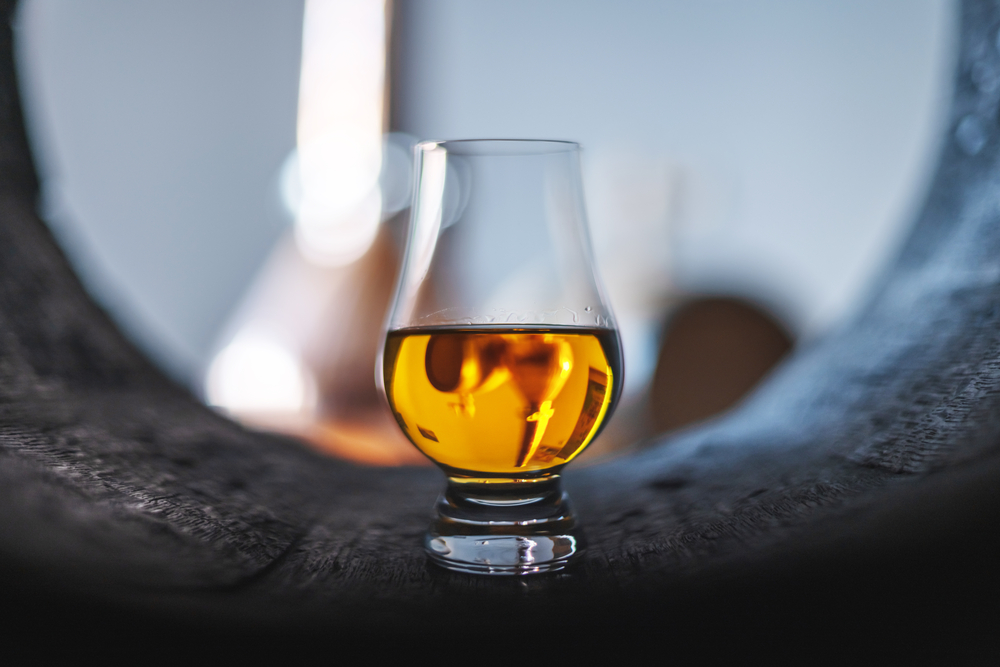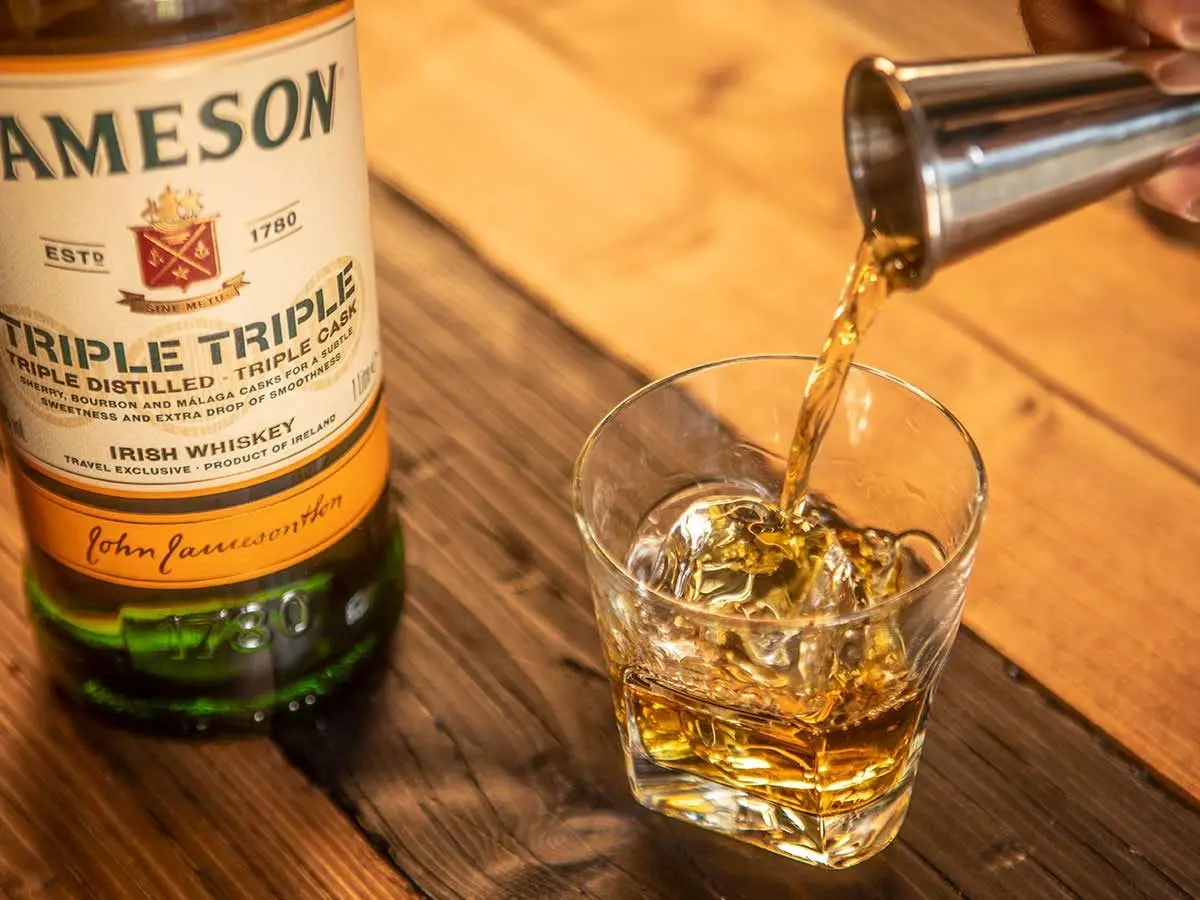
Triple distillation is a process used in the production of spirits, particularly whiskey. The process involves running the distilled liquid through three separate stills, as opposed to the more common method of double distillation. The goal of triple distillation is to produce a smoother, more refined spirit with a higher alcohol content.
While triple distillation is often associated with Irish whiskey, it is not exclusive to the Irish and can be found in other types of spirits as well. The process is believed to have originated in Scotland, where it was used to create a higher quality whiskey. Today, triple distillation is used by distillers around the world to create a wide range of spirits, from vodka to tequila.
Table of Contents
Understanding Distillation
Basics of Distillation
Distillation is the process of separating components of a mixture based on differences in their boiling points. It is commonly used in the production of alcoholic beverages, such as whiskey and vodka, to purify the alcohol and remove impurities.
The basic process of distillation involves heating a mixture of liquids until they vaporize. The vapor is then condensed back into a liquid, which is collected in a separate container. The process is repeated multiple times to increase the purity of the final product.
Types of Distillation
There are two main types of distillation: batch distillation and continuous distillation. Batch distillation is used for small-scale production and involves heating a fixed amount of liquid at a time. Continuous distillation, on the other hand, is used for large-scale production and involves a continuous flow of liquid through the distillation apparatus.
Another important factor in distillation is the number of times the liquid is distilled. Single distillation involves one round of heating and condensation, while double distillation involves two rounds. Triple distillation involves three rounds, and so on.
Each round of distillation increases the purity of the final product, but also results in a loss of volume. Triple distillation is commonly used in the production of high-end spirits, such as Irish whiskey and Scotch whisky, to produce a smoother, more refined product.
 photo credit: www.jamesonwhiskey.com
photo credit: www.jamesonwhiskey.com
Triple Distillation Process
Triple distillation is a process that involves distilling a spirit three times instead of the usual two. It is a technique used to produce a smoother, lighter, and more refined spirit.
First Distillation
The first distillation involves heating the wash (a mixture of water, yeast, and grains) in a pot still. The heat causes the alcohol to vaporize and rise to the top of the still. The vapor is then captured and condensed back into a liquid form, known as the low wine. The low wine contains about 25% alcohol by volume (ABV).
Second Distillation
The second distillation involves heating the low wine in a pot still. The heat causes the alcohol to vaporize and rise to the top of the still. The vapor is then captured and condensed back into a liquid form, known as the high wine. The high wine contains about 60% ABV.
Third Distillation
The third distillation involves heating the high wine in a pot still. The heat causes the alcohol to vaporize and rise to the top of the still. The vapor is then captured and condensed back into a liquid form, known as the spirit. The spirit contains about 70-80% ABV.
Triple distillation produces a smoother, lighter, and more refined spirit by removing more of the impurities and congeners that can give a harsh taste or smell. However, it also results in a lower yield of spirit and can be more expensive and time-consuming than double distillation.
Benefits of Triple Distillation
Triple distillation is a process used in the production of many types of spirits, including whiskey, vodka, and gin. This process involves distilling the spirit three times, instead of the more common two times. While this process is more time-consuming and expensive, it has several benefits that make it worth the extra effort.
Purity and Quality
One of the primary benefits of triple distillation is that it results in a purer and higher quality spirit. Each distillation removes more impurities and unwanted flavors, resulting in a smoother and more refined final product. This is especially important for spirits like vodka, where purity is a key factor in the taste and quality of the spirit.
Triple distillation also helps to increase the alcohol content of the spirit. This is because each distillation concentrates the alcohol, resulting in a higher ABV (alcohol by volume) percentage. This can be beneficial for spirits like whiskey, where a higher ABV can lead to a more intense and complex flavor profile.
Flavor and Texture
Triple distillation can also have a significant impact on the flavor and texture of the final product. Because each distillation removes more impurities and unwanted flavors, the resulting spirit is often smoother and more delicate. This can be especially important for spirits like gin, where the delicate botanical flavors can be easily overwhelmed by harsher flavors.
In addition, triple distillation can help to create a more consistent and uniform flavor profile. This is because each distillation helps to remove any variations or inconsistencies in the spirit, resulting in a more predictable and reliable final product.
Frequently Asked Questions
What are the benefits of triple distilling?
Triple distillation produces a smoother and more refined spirit. It removes more impurities and produces a higher alcohol content, resulting in a cleaner taste. Triple distillation is a labor-intensive process that requires more time and resources, but it can result in a higher quality product.
What is the difference between double and triple distilled?
Double distillation involves two passes through the still, while triple distillation involves three. Triple distillation removes more impurities and produces a higher alcohol content, resulting in a smoother and more refined spirit. Double distillation is a more common method, while triple distillation is typically reserved for high-end spirits.
Is triple distilled whiskey better?
Triple distilled whiskey is not necessarily better than double distilled whiskey. It produces a smoother and more refined spirit, but the quality of the whiskey depends on various factors such as the quality of the ingredients, the aging process, and the skill of the distiller. Some people prefer the bold and complex flavors of double distilled whiskey, while others prefer the smoothness of triple distilled whiskey.
Is triple distilled vodka stronger?
Triple distilled vodka is not necessarily stronger than double distilled vodka. The strength of the vodka depends on the alcohol content, which is determined by the distillation process and the quality of the ingredients. Triple distillation produces a smoother and more refined vodka, but the alcohol content may be the same as double distilled vodka.
Is triple distilled tequila better?
Triple distilled tequila is not necessarily better than double distilled tequila. The quality of the tequila depends on various factors such as the quality of the agave, the aging process, and the skill of the distiller. Triple distillation produces a smoother and more refined tequila, but some people prefer the bold and complex flavors of double distilled tequila.
Conclusion
Triple distillation is a process that involves distilling a liquid three times instead of the usual two. This process is used to create a smoother and more refined spirit, especially in the case of whiskey. It is not a common practice, as it is more time-consuming and expensive than traditional double distillation.
Triple-distilled spirits are not limited to whiskey. Other types of spirits, such as vodka and gin, can also be triple distilled. However, the benefits of triple distillation may not be as noticeable in these spirits as they are in whiskey.
Related Posts:
Here are some related posts that might interest readers who want to learn more about triple distillation:
- Women Who Whisky: 7 Questions for Koval Distillery’s President: This interview with the president of Koval Distillery in Chicago discusses the distillery’s approach to innovation and artisanal distilling, which may be of interest to readers who want to learn more about the craft of distilling.
- Whisky Experts Reveal Their Christmas Day Dram!: This article features a group of whisky experts discussing their favorite whiskies to enjoy on Christmas Day. While not directly related to triple distillation, readers may find it interesting to learn about the different types of whisky that experts enjoy.
- Being a Whisky Auctioneer: This blog post discusses the auction aspect of the whisky industry, which may be of interest to readers who want to learn more about the business side of whisky. While not directly related to triple distillation, readers may find it interesting to learn more about how whisky is bought and sold.
- Discussing Finnish Whisky with Ägräs Distillery’s Director: This interview with the director of Ägräs Distillery in Finland discusses the distillery’s approach to producing whisky, which may be of interest to readers who want to learn more about the different approaches to distilling whisky around the world.
- Q&A: more about me and useful whisky tips!: This blog post features a Q&A session with The Whisky Lady, who answers questions from readers about whisky. While not directly related to triple distillation, readers may find it interesting to learn more about different aspects of the whisky industry and culture.



